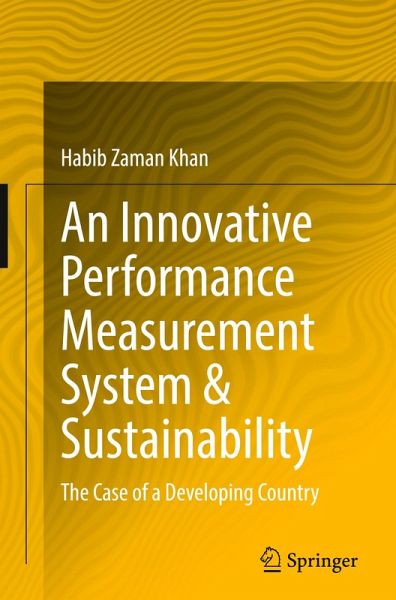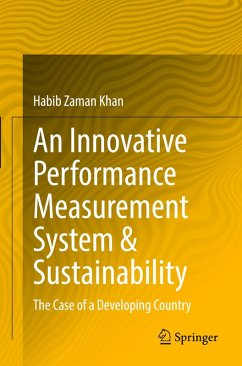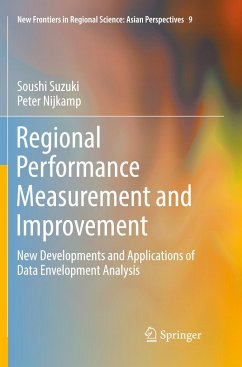
An Innovative Performance Measurement System & Sustainability
The Case of a Developing Country
Versandkostenfrei!
Versandfertig in 6-10 Tagen
98,99 €
inkl. MwSt.
Weitere Ausgaben:

PAYBACK Punkte
49 °P sammeln!
This book assesses the architecture of performance measurement systems (PMS) in emerging countries, utilizing a mix of theoretical frameworks and empirical evidence, with Bangladesh as a case context. It examines the evolution and improvement of performance measurement over time with the introduction of new tools, such as multiple dimensional measures and the balanced scorecard (BSC). The book explores the historical and cultural roots of PMS within the context of developing countries and its latest developments in the context of sustainability practices and sustainable development.Additionall...
This book assesses the architecture of performance measurement systems (PMS) in emerging countries, utilizing a mix of theoretical frameworks and empirical evidence, with Bangladesh as a case context. It examines the evolution and improvement of performance measurement over time with the introduction of new tools, such as multiple dimensional measures and the balanced scorecard (BSC). The book explores the historical and cultural roots of PMS within the context of developing countries and its latest developments in the context of sustainability practices and sustainable development.
Additionally, this book provides empirical evidence from the banking sector in Bangladesh, highlighting the factors driving firms to adopt new PMS. This book is an invaluable resource for researchers and policymakers interested in performance measurement systems in developing countries, offering a foundation for future research and policy initiatives.
Additionally, this book provides empirical evidence from the banking sector in Bangladesh, highlighting the factors driving firms to adopt new PMS. This book is an invaluable resource for researchers and policymakers interested in performance measurement systems in developing countries, offering a foundation for future research and policy initiatives.












